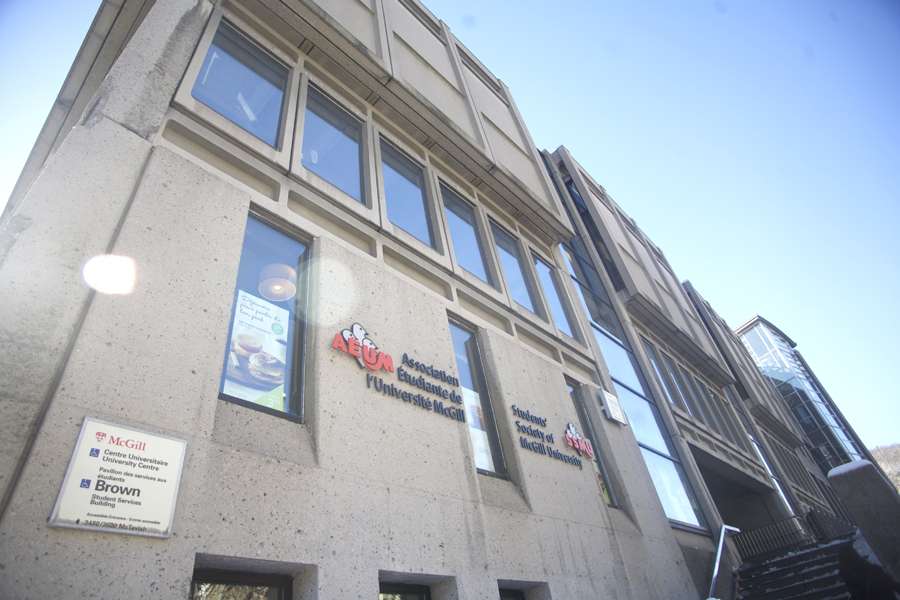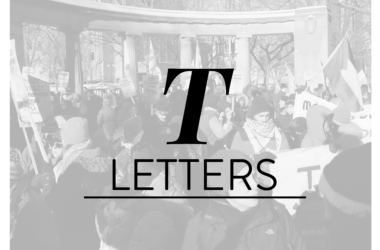Last week, The McGill Tribune published a commentary piece by Gabriel Rincon that critiqued the Students’ Society of McGill University (SSMU) Vice-President (VP) External (my role) for taking political positions and participating in student demonstrations, supported by the underlying thesis that SSMU executives “should represent the interests of all students, independent of politics.”
Instead of going through the VP External mandates and presenting my interpretation of SSMU governance documents, which are prone to different interpretations, I want to instead address this idea of political neutrality as being the endgame of SSMU and, by extension, of its elected representatives.
It is necessary to recognize that political neutrality is largely impossible, both within and external to the SSMU context. Even in campus organizations that have claimed neutrality, political choices are being made. Often, claims of political neutrality are used as a way of trying to detach the inherent politics of a position or decision, and to therefore disempower those who may oppose the decision by labeling them as “making things political.” It is not recently that the SSMU Executives (and specifically those in the VP External position) have become political—it is recently that a call for political neutrality has occurred.
SSMU is a student union. Its very existence is political. In the words of John T. Hackett, the first president of the SSMU in 1909, “Like most new forms of Government [SSMU’s] ‘raison d’être’ was found in abuses.”
If you look at SSMU’s Policy book, you see that not a single one of the policies is devoid of politics—not even the Human Resources Policy. Advocating for student issues is political—especially in recent years, when under the austerity regime of Philippe Couillard’s provincial government, students are increasingly being treated like cash cows and the quality of our education is decreasing as funding gets cut.
By claiming neutrality, an organization gives itself the power to choose what is neutral and what is political, and that opens up a lot of difficult questions. Is a student union that fights for accessible education too political? Should the SSMU not advocate for student mental health care because that would require government reinvestment, and that is inherently political? Does supporting events dedicated to marginalized students violate our ability to represent the majority of students?
Ultimately, political issues must be discussed. They should be discussed critically, but they should never be banned or stifled under the guise of neutrality.
This is why it was so surprising when, a few weeks ago, the new Board of Directors ratified last year’s Judicial Board ruling of the unconstitutionality of the Boycott, Divest, and Sanctions (BDS) movement in a matter of minutes, and presented the ratification as “politically neutral.” The decision had been debated upon for over a year prior by the previous Board, as it was understood that it was not devoid of politics.
While I agree with the Gabriel Rincon wholeheartedly that it is important that the SSMU represent the majority of students, it is equally important that it stands up for those most marginalized by society. In our constitution, the SSMU makes a commitment to "groups, programs and activities that are devoted to the well-being of a group disadvantaged because of irrelevant personal characteristics that include but are not limited to race, national or ethnic origin, colour, religion, sex, gender identification, age, mental or physical disability, sexual orientation or social class." Both on and off campus, certain events can have harmful effects on the general well-being of some of our student members, and it is essential that the SSMU be willing to show solidarity with students who are affected.
To remove SSMU's ability to act politically and support both internal and external campaigns for social and environmental justice would be doing an incredible disservice to extremely important social movements led by campus activists. It is in my mandate to support these initiatives, and all student-led grassroots initiatives to the best of my ability. It is the VP External’s job to campaign and mobilize. As outlined in my platform during elections, I support a diversity of tactics, and I encourage my fellow students to not be apolitical—instead, watch, read, critique, engage. There’s a lot that needs to change, both within SSMU and externally. So here we go.







